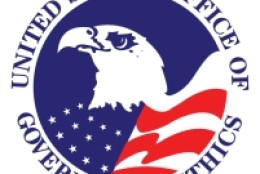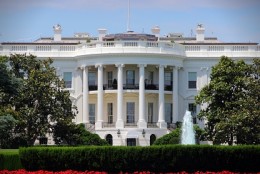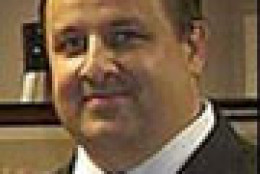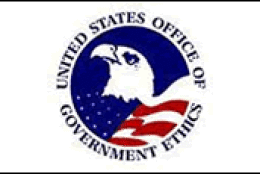Office of Government Ethics
-
Without a doubt, the 2016 presidential transition is the top priority for the Office of Government Ethics this year. OGE Director Walter Shaub said his agency has more training courses and guides, as well as an electronic financial disclosure filing system, to help ethics officers prepare.
March 10, 2016 -
Agency preparations for the 2016 presidential transition are well underway. The Office of Government Ethics is adding more training programs to help its employees vet and process financial disclosure forms for new political appointees. And Congress just passed comprehensive transition legislation.
March 08, 2016 -
The Office of Special Counsel, Merit Systems Protection Board and Office of Government Ethics haven't received authorization from Congress since 2007. But Congress says it wants to consider additional legislation and statutory changes before it issues new reauthorizations.
December 16, 2015 -
The Office of Government Ethics revised its set of gift acceptance standards for the first time since 1992. Comments are open on the proposed rule through Jan. 26.
December 04, 2015 -
Nineteen agencies have already adopted Integrity, the new electronic financial disclosure program introduced by the Office of Government Ethics to help streamline public filing process.
March 02, 2015 -
The STOCK Act, the revolving door, the reverse revolving door: these are the reasons why the Office of Government Ethics is being more aggressive in its training of federal employees. Over the last year, OGE has offered 238 percent more training courses and hours then the year before. In part two of their interview, Walter Shaub, director of the Office of Government Ethics, told Federal News Radio Executive Editor Jason Miller how OGE is managing through this volatile environment.
September 25, 2014 -
Walter Shaub, the director of the Office of Government Ethics, said the agency is focusing on three areas in order to improve ethics training across government: communication, direct support to agency ethics officials and oversight.
September 25, 2014 -
The National Government Ethics Summit, sponsored by the Office of Government Ethics, highlighted basic and advanced training for federal ethics officials, as well as broader subjects, such as whistleblower retaliation, the Hatch Act and other legal issues. Walter Shaub, the director of OGE, wants training sessions such as these to bring the federal ethics community closer together.
September 24, 2014 -
The Office of Government Ethics is stepping out from behind the legal and policy curtain to help build a broader community, and it wants agency ethics officials and others to do the same. Walter Shaub, director of the Office of Government Ethics, says a month-long series of seminars and summits is part of a broader effort to change the view of ethics oversight across government. He spoke to Federal News Radio Executive Editor Jason Miller in part one of their interview.
September 23, 2014 -
The Office of Government Ethics says the Veterans Affairs Department needs to expand the legal team responsible for ensuring employees follow government ethics rules. The team has just 19 people, in a department of more than 342,000.
September 23, 2014 -
Ty Cooper, the OGE chief information officer, said a new voice over IP, virtual desktop interface and the move to Windows 7 will enable employees to take advantage of more workplace capabilities. December 19, 2013
December 19, 2013 -
With President Barack Obama's second inauguration - along with the flurry of balls, receptions and other related ceremonies - just weeks away, the Office of Government Ethics has issued new guidance to agency ethics officials.
January 04, 2013 -
A memo by a government watchdog group finds the General Services Administration's ethics program received high marks in a November 2010 study from the Office of Government Ethics. The report was issued shortly after GSA threw the lavish Las Vegas conference that has led to the firings of top officials and the resignation of Administrator Martha Johnson and a slew of congressional hearings.
August 06, 2012 -
Congress has delayed by a month parts of an insider-trading law that would have required federal employees to post financial-disclosure forms online Aug. 31. Senate Majority Leader Harry Reid (D-Nev.) introduced the measure Thursday, where it was quickly adopted by both chambers of Congress. The vote came shortly before the American Civil Liberties Union filed a lawsuit in federal court in Greenbelt, Md., on behalf of 28,0000 employees to block implementation of the STOCK Act.
August 02, 2012 -
Walter Shaub Jr. said the STOCK Act could cause unintended consequences for federal employees' privacy and safety. Shaub said he favors revisions aimed at striking a balance between the need to protect personal information and the law's requirement to disclose stock trades.
July 23, 2012








